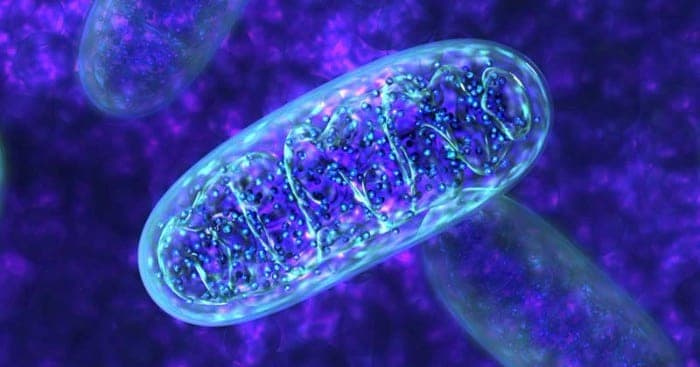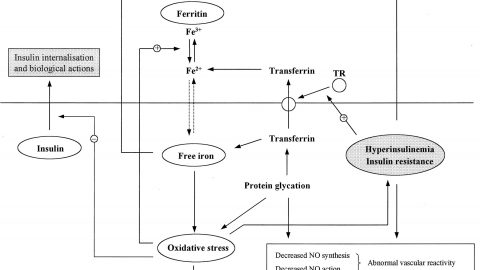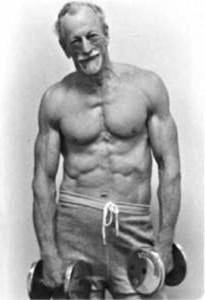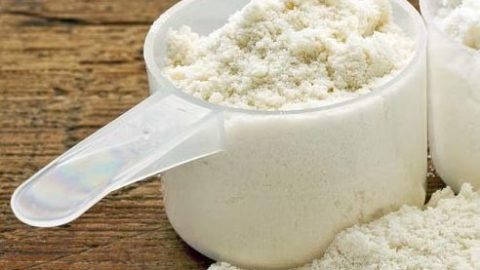Might sound a bit esoteric to some, but this is potentially a very big deal. Support for cellular energy and healthy mitochondria is well established with creatine, but actually increasing mitochondrial biogenesis in both muscle and cardiac tissue in response to exercise, is a major finding that needs to be reproduced in humans, but we already know humans can produce new mitochondria in response to exercise and that creatine has a long list of potential health/anti aging benefits, so I don’t expect that effect to be exclusive to the species of animal studied here.
For those who may need a refreshers as to just some of the potential benefits of creatine as it applies to human aging and disease, see my extensive article on that topic via the Life Extension Magazine: Creatine Reduces Markers Of Aging. Those many potential benefits – and that’s not even close to all of them! – is why creatine is an essential ingredient in AlphaJoe/Bomb Proof Coffee.
Why is this new finding on creatine so potentially important? Health, wellness, aging, and disease prevention happens at the cellular level, and the essential aspect of cellular health is that of the mitochondria. Aging, disease, and performance, are all intertwined with the health and function of the mitochondria and the hallmarks of aging manifest themselves at the level of the mitochondria. Finally, a long list of diseases are associated with mitochondrial dysfunction. A discussion on that topic beyond the scope of this post, but a good write up via Medical News Today is HERE and for those who want to get really deep into the weeds via the Journal Cell HERE. and J. Genes HERE. There’s a number of compounds known to assist the function of the mitochondria and perhaps biogensis, such as coenzyme Q10, carnitine, lipoic acid, (pyrroloquinoline quinone (PQQ), and creatine, to name the best known to date. Of course, the study also found creatine was “…devoid of any kidney or liver adverse effects.” Conclusion? If you’re not using creatine you’re doing it wrong…
Speaking of Mitochondria, an excellent review paper was just published examining the potential benefits of creatine in various conditions and diseases involving Mitochondrial dysfunction. According to the authors
“…research suggests that CrM supplementation may also serve as a therapeutic tool in the management of some chronic and traumatic diseases. Creatine supplementation has been reported to improve high-energy phosphate availability as well as have antioxidative, neuroprotective, anti-lactatic, and calcium-homoeostatic effects. These characteristics may have a direct impact on mitochondrion’s survival and health particularly during stressful conditions such as ischemia and injury. This narrative review discusses current scientific evidence for use or supplemental CrM as a therapeutic agent during conditions associated with mitochondrial dysfunction.” The full paper can be read HERE.
Note the study used a very high dose of ceatine (0.5 g/kg per day) which would = approx 45g of creatine for a 200lb man! Far more creatine than anyone would want or need to use. Note however, the equivalent doses in mice and rates are generally 8 to 10 fold higher than in humans, and we know that 3-5g of creatine (as monohydrate) fully saturates muscle tissue (vs brain, which is another topic…), so people are not likely to see additional benefits at 10, 20, much mess 40, grams! Will the typical human dose have the similar effect on humans as that dose did on rats? Until an actual graded dose human study is done, the answer is unclear at this time, but my educated opinion is, 3-5g daily will be sufficient. It should also be noted the effects between exercising with and without creatine were not large on the impact of genes that regulated mitochondrial biogenesis, but I’m still encouraged by these findings.
Here’s the study:
Enhanced mitochondrial biogenesis is associated with the ameliorative action of creatine supplementation in rat soleus and cardiac muscles. Experimental and therapeutic medicine vol. 19,1 (2020): 384-392.
The current study focused on the effect of creatine supplementation with/without exercise on the expression of genes controlling mitochondrial biogenesis in skeletal and cardiac muscles, as well as its safety profile on the liver and kidney. A total of 40 male Wister rats were included in the present study. Two unexercised groups: The control sedentary group and the sedentary creatine-treated group (n=10) were treated daily with oral creatine (0.5 g/kg per day).
Two exercised groups performed swimming exercise training 5 days/week for a period of 5 weeks; The Exercise training group, and exercise training and creatine (0.5 g/kg per day) treated group. After sacrifice, blood samples, cardiac and soleus muscles were collected for assessment of mtDNA copy number, gene expression analysis and nuclear extraction for the assay of PGC-1α.
The results of the current study demonstrated that, physical activity with short-term creatine supplementation increased all factors of mitochondrial biogenesis, an effect that is devoid of any kidney or liver adverse effects. Further studies are still required to explore the potential of creatine supplementation in ameliorating mitochondrial diseases, including epilepsy, skeletal and cardiac myopathies, hepatopathies and nephropathies.
Full Paper HERE.
Will Brink is the owner of the Brinkzone Blog. Will has over 30 years experience as a respected author, columnist and consultant, to the supplement, fitness, bodybuilding, and weight loss industry and has been extensively published. Will graduated from Harvard University with a concentration in the natural sciences, and is a consultant to major supplement, dairy, and pharmaceutical companies.
His often ground breaking articles can be found in publications such as Lets Live, Muscle Media 2000, MuscleMag International, The Life Extension Magazine, Muscle n Fitness, Inside Karate, Exercise For Men Only, Body International, Power, Oxygen, Penthouse, Women’s World and The Townsend Letter For Doctors.
He’s also been published in peer reviewed journals.
Will is the author of the popular e-books, both accompanied by private members forum access , Bodybuilding Revealed & Fat Loss Revealed.
You can also buy Will’s other books on Amazon, Apple iBook, and Barnes and Noble.









The creatine dose of .5g/kg is very high for an adult male human, right? For a 200 pound male that would be 45 grams. I take a total of 10 grams per day, so what effects would I expect?
I have added comments to the article to address that issue.
ON MY LAST LAB RESULTS the reading for CREA was 1.64 and considered high. Is that actually creatine? I am not supplementing at the present? This was from the PLASMA sample section
1/CREAT was .60 so do you know what those two mean?
Research creatine vs creatinine ….
Hi Will, I love your blogs. I read yours and Monica’s every time I get a chance. I even refer them to some of my friends. I have a history of prostate inflammation, although I don’t have prostate cancer. I am over 60. I am still going to the gym 5 days a week and practice Martial Arts on weekend. I contemplated using creatine many times. Some of my friends told me it may have an adverse effect on my prostate. I trust you research. It is true that creatine may affect my prostate negatively?
I appreciate your response.
Thanks
Jean
You absoluley should ask your urologist.
About what?
Thanks for the article “Creatine Increases Mitochondrial Biogenesis.”
I’m starting my fifth year on the Keto Diet in March 2020. There has been no downside impact on my resistance training.
The mitochondria metabolize fats, and I found the article interesting.
Body composition remains in the 9% to 11% for body fat and my total body weight range from 175 lbs to 180 lbs in my four years of nutritional ketogenesis. I am following Dr. Stephen D. Phinney and Dr. Jeff Volek on nutritional ketosis. My daily 5g creatine in the morning may have additionals benefits.
Dr, Ward Dean, MD, wrote this article concerning the use of Creatine. The article was called Mitochondrial Restoration (part 3):
: http://warddeanmd.com/mitochondrial-restoration-part-iii-d-ribose-and-creatine-increase-mitochondrial-energy-production/
I would also suggest reading parts 1 and 2 to point out the importance of mitochodrial bio-energetic restoration/enhancers. And, yes, exercise is one of the enhancers.
Also, FYI,
A ncbi article (Nat. Inst. of Health) talks about the use of “Yang” herbs to increase levels of mitochondrial ATP. Some are somewhat familiar such as Cistanche (see https://www.lifeextension.com/magazine/2015/1/immune-boosting-strategy-for-longevity ) and Epimedium (see http://www.anti-agingfirewalls.com/2012/03/07/focus-on-phytosubstances-–-amazing-properties-of-epimedium-and-icariin/ ).
The ncbi article mentioned above is here: https://www.ncbi.nlm.nih.gov/pmc/articles/PMC1847515/
Will
Do you recommend one brand over another for CM ?
Thanks
Lewis
I recommend Creapure as the source for creatine per my articles and vids on this page.